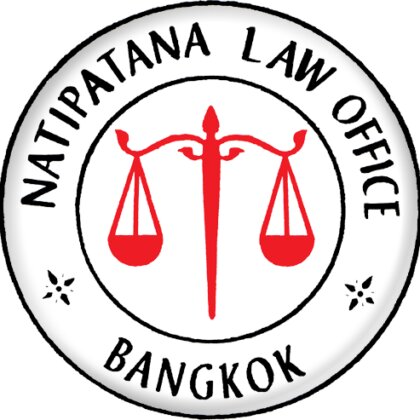Best Housing, Construction & Development Lawyers in Phuket
Share your needs with us, get contacted by law firms.
Free. Takes 2 min.
Free Guide to Hiring a Real Estate Lawyer
List of the best lawyers in Phuket, Thailand
Legal guides written by SIAM LEGAL INTERNATIONAL:
- Defamation Laws in Thailand: Criminal Charges and Civil Suits
- The State of Thailand’s Long-Term Resident (LTR) Visa Program in 2025
- The Penalties Of Not Filing Your Income Tax Return As A Foreigner In Thailand
Thailand Housing, Construction & Development Legal Questions answered by Lawyers
Browse our 1 legal question about Housing, Construction & Development in Thailand and read the lawyer answers, or ask your own questions for free.
- Property in Phuket
- I bought a property in Phuket in 2019 and it should be completed at the end of 2021 but the project was delayed. I paid nearly full payment but now I cannot contact the project owner anymore. Please kindly advise what I should do. Thanks.
-
Lawyer answer by GPS Legal
Thank you for your question. My name is Dave Lind, Director-Client Services at GPS-Legal. GPS has extensive experience in property matters in Thailand. In terms of what you should do, if you have exhausted your ability to rectify this situation...
Read full answer
Thailand Housing, Construction & Development Legal Articles
Browse our 4 legal articles about Housing, Construction & Development in Thailand written by expert lawyers.
- How Foreigners Can Own Property in Thailand
- For foreigners considering property ownership in Thailand, understanding the process and relevant laws is crucial. These laws are not typically compared to the property ownership laws of other countries, as the Kingdom strictly regulates which foreigners can own property, the circumstances under which they can do so, and the types... Read more →
- Condominium Ownership in Thailand: What Foreigners Need to Know
- Thailand's attractiveness as a prime property investment destination continues to attract foreign investors, particularly in the condominium market. The rich cultural makeup of the country, picturesque landscapes, and a flourishing tourism industry make Thailand an appealing prospect. However, successfully becoming a condominium owner in Thailand demands a nuanced understanding of... Read more →
- Understanding Thailand's Land Ownership Laws: A Guide for Foreign Investors
- When it comes to buying property in a foreign country, the legal landscape can often seem like a labyrinth of confusing regulations and restrictions. Thailand, a popular destination for foreign investors, is no exception. Many prospective property buyers find themselves bewildered by terms like "chanote," "concrete acts," and "usufruct." However,... Read more →
About Housing, Construction & Development Law in Phuket, Thailand
Phuket, an island paradise known for its stunning beaches and tropical climate, has experienced significant development over the years. This surge has been driven by both domestic and international interest in real estate, leading to a robust housing, construction, and development sector. The legal framework in this area is designed to regulate land use, building standards, and environmental concerns. Real estate laws in Phuket are influenced by both national laws and local regulations, ensuring that construction and development processes meet high standards while respecting the island's unique environment.
Why You May Need a Lawyer
Engaging a lawyer in the housing, construction, and development sector in Phuket might be necessary for several reasons:
- Understanding property ownership laws, particularly for foreigners.
- Negotiating and drafting contracts with developers, contractors, or buyers.
- Resolving disputes related to property transactions or construction contracts.
- Navigating Thailand's zoning and environmental laws to ensure compliance.
- Assisting with due diligence in property acquisitions.
- Representation in legal proceedings should disputes escalate to court.
Local Laws Overview
Several key laws and regulations govern housing, construction, and development in Phuket:
- Land Code Act: This act regulates land ownership and use, with specific considerations for foreign ownership and leases. Foreigners cannot directly own land but can own buildings and lease land for up to 30 years.
- Condominium Act: Allows foreigners to own condominiums, provided that foreign ownership does not exceed 49% of the total area of all units combined.
- Building Control Act: Establishes standards for construction permits, design, safety, and sanitation of buildings to ensure public safety.
- Environmental Protection Act: Ensures that development projects comply with environmental preservation laws, which is crucial in the ecologically sensitive area of Phuket.
- Zoning laws: Dictate land use in various parts of Phuket, affecting what types of development are permissible in different areas.
Frequently Asked Questions
Can foreigners own land in Phuket?
Foreigners cannot own land directly in Thailand, including Phuket. However, they can lease land for a long period or own structures on the land.
What are the requirements for a construction permit in Phuket?
A construction permit requires compliance with the Building Control Act, submission of architectural plans, and adherence to zoning laws. Approval must be obtained from local authorities.
Is it possible for foreigners to own a condominium unit in Phuket?
Yes, foreigners can own a condominium unit in Phuket, with the restriction that foreign ownership must not exceed 49% of the total area of all units in the building.
What should I check before purchasing a property in Phuket?
Before purchasing, ensure clear land title deeds, review zoning laws, assess infrastructure and utilities, and perform due diligence to confirm legal ownership and property rights.
How can I resolve a contract dispute with a developer?
Such disputes can be addressed through negotiation, mediation, or legal action. A lawyer can provide guidance on the best approach based on the contract terms and the nature of the dispute.
What is the role of the Thai Land Department?
The Land Department manages land-related documents, oversees land registration, and ensures the legality of deeds and transfers. They play a crucial role in property transactions.
Are there any environmental considerations when building in Phuket?
Yes, compliance with the Environmental Protection Act is needed, particularly in areas close to coastlines, forests, and protected zones to prevent ecological damage.
What happens if I build without a permit?
Building without a permit can result in fines, forced demolition of illegal structures, and legal action. It is crucial to obtain a permit before starting construction.
How do zoning laws affect property development?
Zoning laws define how land in different areas can be used, affecting the type of buildings allowed and their size, design, and intended use, thus impacting your development plans.
Can I convert agricultural land to residential use?
Conversion is subject to zoning laws and approval from local authorities. It requires thorough assessment and compliance with specific regulations before proceeding.
Additional Resources
Here are some resources and organizations that can provide guidance and assistance:
- Thai Land Department: For legal and procedural information on land ownership and titles.
- Phuket Provincial Office: For local regulations, zoning laws, and permit applications.
- Legal Firms Specializing in Real Estate: They can offer detailed advice and representation for real estate matters.
- Chamber of Commerce in Phuket: Provides resources and networking opportunities for real estate developers and investors.
Next Steps
If you need legal assistance in housing, construction, and development in Phuket, consider the following steps:
- Research and contact a reputable law firm specialized in real estate law in Thailand.
- Prepare any relevant documents concerning your property or transaction for review.
- Schedule a consultation to discuss your specific needs and legal queries.
- Ensure the lawyer you choose is well-versed in both local and national laws applicable to your situation.
By taking these steps, you can enter the Phuket real estate market well-informed and prepared for the various legal challenges that may arise.
Lawzana helps you find the best lawyers and law firms in Phuket through a curated and pre-screened list of qualified legal professionals. Our platform offers rankings and detailed profiles of attorneys and law firms, allowing you to compare based on practice areas, including Housing, Construction & Development, experience, and client feedback.
Each profile includes a description of the firm's areas of practice, client reviews, team members and partners, year of establishment, spoken languages, office locations, contact information, social media presence, and any published articles or resources. Most firms on our platform speak English and are experienced in both local and international legal matters.
Get a quote from top-rated law firms in Phuket, Thailand — quickly, securely, and without unnecessary hassle.
Disclaimer:
The information provided on this page is for general informational purposes only and does not constitute legal advice. While we strive to ensure the accuracy and relevance of the content, legal information may change over time, and interpretations of the law can vary. You should always consult with a qualified legal professional for advice specific to your situation.
We disclaim all liability for actions taken or not taken based on the content of this page. If you believe any information is incorrect or outdated, please contact us, and we will review and update it where appropriate.
















